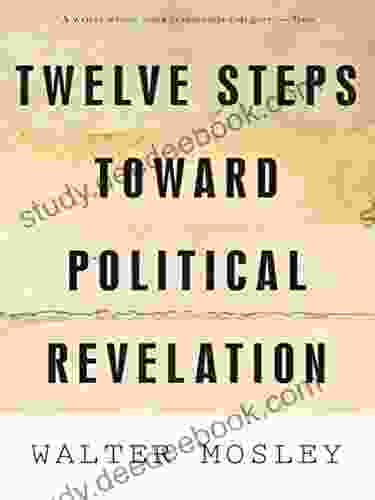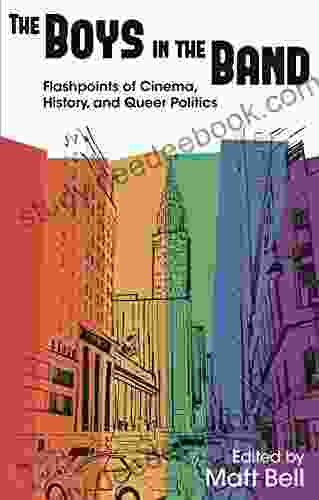Emancipating Radical Change from the State: SUNY in the New Political Science

Abstract
This article explores the potential for SUNY to play a leading role in emancipating radical change from the state. It argues that SUNY's unique position as a public university system with a global reach gives it the potential to create a new model of higher education that is both transformative and emancipatory. The article draws on the work of political theorist Chantal Mouffe to develop a conceptual framework for understanding the relationship between radical change and the state. It then examines SUNY's history and current initiatives in order to identify potential pathways for emancipating radical change from the state.
The State University of New York (SUNY) is the largest public university system in the United States. It is a sprawling network of 64 campuses, with a student body of over 400,000 students. SUNY's mission is to "provide affordable, high-quality education to all New Yorkers." However, SUNY has the potential to be much more than just a provider of educational services. It has the potential to be a catalyst for radical social and political change.
4.8 out of 5
| Language | : | English |
| File size | : | 959 KB |
| Text-to-Speech | : | Enabled |
| Screen Reader | : | Supported |
| Enhanced typesetting | : | Enabled |
| Word Wise | : | Enabled |
| Print length | : | 409 pages |
In recent years, there has been a growing movement within political science to rethink the relationship between radical change and the state. Traditional theories of radical change have often seen the state as an obstacle to change. However, a new generation of scholars is arguing that the state can also be a tool for change. This new approach to radical change is known as "emancipatory politics."
Emancipatory politics is based on the idea that the state can be used to empower marginalized groups and create a more just and equitable society. This approach to politics is rooted in the work of political theorist Chantal Mouffe. Mouffe argues that the state is not a neutral entity, but rather a site of political struggle. She argues that the state can be used to either oppress or liberate people, depending on the balance of forces within the state.
SUNY has the potential to be a key player in the movement for emancipatory politics. SUNY's unique position as a public university system with a global reach gives it the potential to create a new model of higher education that is both transformative and emancipatory. SUNY can use its resources to support research and teaching on radical social and political change. It can also create partnerships with community organizations and social movements to help bring about change in the real world.
Emancipatory Politics and the State
Chantal Mouffe's theory of emancipatory politics is based on the idea that the state is not a neutral entity, but rather a site of political struggle. She argues that the state can be used to either oppress or liberate people, depending on the balance of forces within the state. Mouffe's theory has been influential in a wide range of disciplines, including political science, sociology, and cultural studies.
Mouffe argues that the state is not a monolithic entity, but rather a complex and contradictory set of institutions. She identifies two main dimensions of the state: the "juridical-political" and the "economic-social." The juridical-political dimension of the state refers to the legal and political institutions that make up the state, such as the courts, the police, and the legislature. The economic-social dimension of the state refers to the economic and social policies that the state implements, such as taxation, welfare, and education.
Mouffe argues that the relationship between the juridical-political and economic-social dimensions of the state is dialectical. She argues that the juridical-political dimension of the state is shaped by the economic-social dimension, and vice versa. This dialectical relationship means that the state is constantly in a process of change. It is never fixed or stable, but rather is always in a state of flux.
Mouffe's theory of the state has implications for understanding the relationship between radical change and the state. Mouffe argues that radical change is possible through the state, but it is not easy. Radical change requires a shift in the balance of forces within the state. This shift can be brought about through a variety of means, such as social movements, political mobilization, and electoral politics.
SUNY's Potential for Emancipatory Politics
SUNY has the potential to be a key player in the movement for emancipatory politics. SUNY's unique position as a public university system with a global reach gives it the potential to create a new model of higher education that is both transformative and emancipatory. SUNY can use its resources to support research and teaching on radical social and political change. It can also create partnerships with community organizations and social movements to help bring about change in the real world.
SUNY has a long history of involvement in social and political change. In the 1960s, SUNY campuses were at the forefront of the civil rights movement and the anti-war movement. In the 1970s, SUNY campuses were involved in the women's movement and the environmental movement. In the 1980s, SUNY campuses were involved in the anti-apartheid movement and the Central America solidarity movement.
Today, SUNY campuses are involved in a wide range of social and political movements. SUNY students are working to fight for racial justice, economic justice, and environmental justice. They are also working to promote peace, democracy, and human rights. SUNY faculty are conducting research on social and political issues, and they are teaching courses that help students to understand the world around them.
SUNY has the potential to be a catalyst for radical social and political change. It has the resources, the expertise, and the commitment to make a difference in the world. SUNY can be a leader in the movement to create a more just and equitable society.
The State University of New York has the potential to be a key player in the movement for emancipatory politics. SUNY's unique position as a public university system with a global reach gives it the potential to create a new model of higher education that is both transformative and emancipatory. SUNY can use its resources to support research and teaching on radical social and political change. It can also create partnerships with community organizations and social movements to help bring about change in the real world.
SUNY has a long history of involvement in social and political change. SUNY campuses have been at the forefront of some of the most important social movements in American history. Today, SUNY campuses are involved in a wide range of social and political movements. SUNY students, faculty, and staff are working to fight for racial justice, economic justice, and environmental justice.
SUNY can be a leader in the movement to create a more just and equitable society. SUNY has the resources, the expertise, and the commitment to make a difference in the world. SUNY can be a catalyst for radical social and political change.
References
- Mouffe, Chantal. The Democratic Paradox. Verso, 2000.
- Mouffe, Chantal. Hegemony and Socialist Strategy: Towards a Radical Democratic Politics. Verso, 2014.
- SUN
4.8 out of 5
| Language | : | English |
| File size | : | 959 KB |
| Text-to-Speech | : | Enabled |
| Screen Reader | : | Supported |
| Enhanced typesetting | : | Enabled |
| Word Wise | : | Enabled |
| Print length | : | 409 pages |
Do you want to contribute by writing guest posts on this blog?
Please contact us and send us a resume of previous articles that you have written.
 Book
Book Novel
Novel Page
Page Chapter
Chapter Story
Story Genre
Genre Reader
Reader Library
Library Paperback
Paperback Magazine
Magazine Paragraph
Paragraph Sentence
Sentence Bookmark
Bookmark Shelf
Shelf Bibliography
Bibliography Preface
Preface Codex
Codex Tome
Tome Bestseller
Bestseller Library card
Library card Narrative
Narrative Biography
Biography Autobiography
Autobiography Reference
Reference Dictionary
Dictionary Character
Character Catalog
Catalog Card Catalog
Card Catalog Stacks
Stacks Archives
Archives Scholarly
Scholarly Reserve
Reserve Academic
Academic Reading Room
Reading Room Rare Books
Rare Books Literacy
Literacy Study Group
Study Group Dissertation
Dissertation Storytelling
Storytelling Awards
Awards Christeena Burks
Christeena Burks Deborah Stevenson
Deborah Stevenson Brian Unwin
Brian Unwin Gary M Klass
Gary M Klass Patrick Warfield
Patrick Warfield Ashley Curtis
Ashley Curtis Buddhist Text Translation Society
Buddhist Text Translation Society Lise Mcclendon
Lise Mcclendon Andreas Wedel
Andreas Wedel Kristen Bird
Kristen Bird Karen Bojar
Karen Bojar Steven Cooper
Steven Cooper Chet Atkins
Chet Atkins Michael Chase
Michael Chase Sheri Wall
Sheri Wall Emily Hall
Emily Hall Mike Pearson
Mike Pearson Suzanne Kelman
Suzanne Kelman Terrence J Sejnowski
Terrence J Sejnowski David Mcgrath
David Mcgrath
Light bulbAdvertise smarter! Our strategic ad space ensures maximum exposure. Reserve your spot today!

 Vic ParkerThe Corroborated Case Against Hillary Clinton: A Comprehensive Examination of...
Vic ParkerThe Corroborated Case Against Hillary Clinton: A Comprehensive Examination of... Salman RushdieFollow ·19.7k
Salman RushdieFollow ·19.7k Esteban CoxFollow ·6.2k
Esteban CoxFollow ·6.2k Hayden MitchellFollow ·7k
Hayden MitchellFollow ·7k Michael ChabonFollow ·14.4k
Michael ChabonFollow ·14.4k George Bernard ShawFollow ·13.7k
George Bernard ShawFollow ·13.7k Xavier BellFollow ·17.4k
Xavier BellFollow ·17.4k Harold BlairFollow ·6.1k
Harold BlairFollow ·6.1k Harvey BellFollow ·18.9k
Harvey BellFollow ·18.9k

 Dominic Simmons
Dominic SimmonsIcky Island: An Unforgettable Adventure for Kids!
Introducing Icky Island: A Delightful One...

 Carlos Fuentes
Carlos FuentesThe Midnight Breed: Embracing the Shadows and Unlocking a...
Welcome to the captivating world of...

 Ike Bell
Ike BellTwelve Steps Toward Political Revelation: A Path to...
Politics, often perceived as a complex and...

 Cameron Reed
Cameron ReedTravels in Arizona Goldfield: Unraveling the Threads of...
Nestled amidst the rugged...

 John Grisham
John GrishamFlashpoints of Cinema History and Queer Politics:...
The relationship between cinema history and...
4.8 out of 5
| Language | : | English |
| File size | : | 959 KB |
| Text-to-Speech | : | Enabled |
| Screen Reader | : | Supported |
| Enhanced typesetting | : | Enabled |
| Word Wise | : | Enabled |
| Print length | : | 409 pages |












